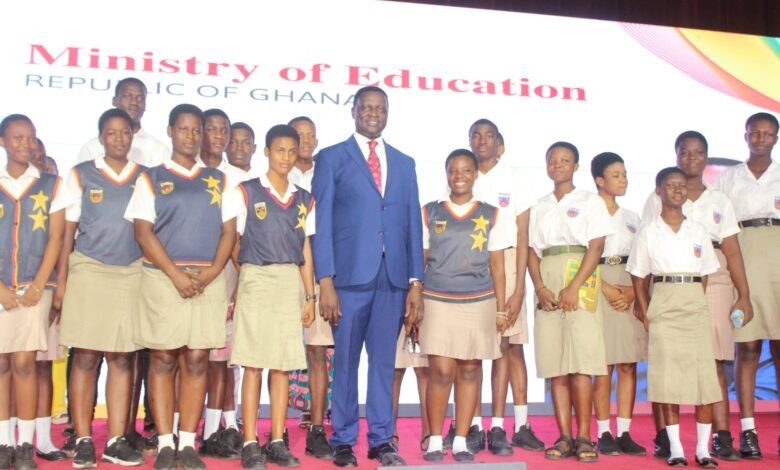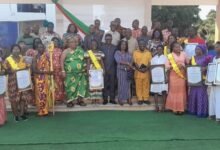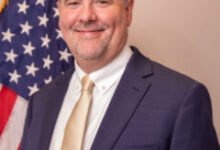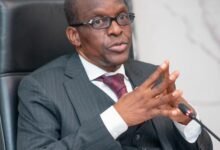At the State of Education in Ghana Address: We’ve made giant strides in education …transformation evident in FSHS introduction, others in last 7 years-Dr Adutwum

Ghana’s education sector has seen significant progress over the last seven years under the current government, according to the Minister of Education, Dr Yaw Osei Adutwum.
He said the transformation was evident in the introduction of the Free Senior High School programme, the increase in infrastructure, improvements in access to education, and the construction of Science, Technology, Engineering, and Mathematics (STEM) Centres as well as STEM Senior High Schools (SHSs).
He also cited curriculum reviews, improvements in learning outcomes, gender parity in education access, and ongoing efforts to establish more universities as indicators of the government’s investment and dedication to human resource development.
Delivering what he termed the State of Education in Ghana Address in Accra yesterday, he said, that the government had made education better than before and was on course to do more.
“We may not be where we want to be, but we are not where we used to be,” he said at the event, which brought together officials from the Ministry and Ghana Education Service, heads of schools, students, and other stakeholders.
Aided by an audio-visual presentation, Dr Adutwum, who is the Member of Parliament for Bosomtwe in the Ashanti Region, highlighted how the government’s investment in the sector was crucial for national development.
On infrastructure, he mentioned that basic schools had been refurbished with new ones built across the country, in addition to the construction of boarding facilities for at least six Community Day schools and new model schools in areas including Juaben and Sunyani.
He noted that 11 STEM SHSs had been built in areas including Awaso, Accra, and Koase, while STEM centres had been established at 19 existing SHSs, including Mfantsipim in Cape Coast, to equip students with the requisite skills for the fourth industrial revolution.
Dr Adutwum also mentioned that the government had completed science laboratories at Kumasi High School, Aburi Girls, Aflao Community Day School, Okuapem SHS, and St. Louis SHS.
He said the cabinet approval of free compulsory secondary education would help consolidate efforts to increase access to SHS, while the bills for the establishment of at least six new universities, currently before parliament would expand tertiary education.
He also noted that the government had boosted Technical and Vocational Education and Training (TVET) by upgrading schools and increasing access to them.
Regarding the Free SHS policy, which he said had achieved gender parity, Dr Adutwum asserted that it had significantly improved learning outcomes, contrary to claims that it had eroded the quality of education.
Citing the West African Secondary School Certificate Examination, he noted that in 2015, only 45.2 per cent of students earned a credit score in English Language, but by 2023, this figure had risen to 73.11 per cent, with students achieving grades from A1 to C6.
He mentioned similar improvements in other core subjects and stated that the Free SHS programme had enabled the poor and underprivileged to access secondary education.
In terms of enrollment, he noted that the Northern Region leads with a 95 per cent enrollment rate, followed closely by the Savannah, North East, Upper East, and Upper West regions.
Dr Adutwum thanked stakeholders in the sector for their contribution to the achievement by the government.
BY JONATHAN DONKOR







